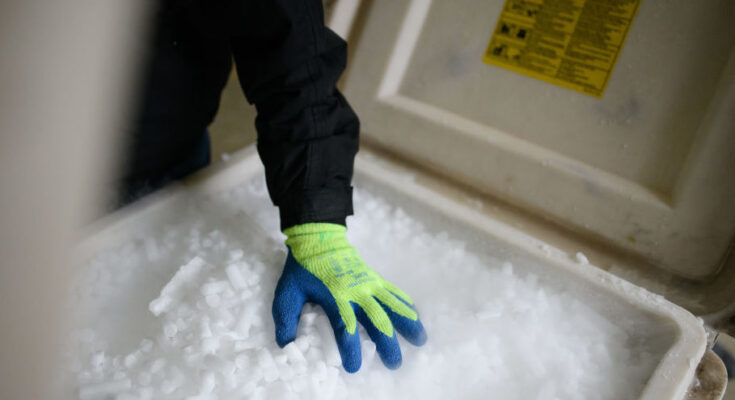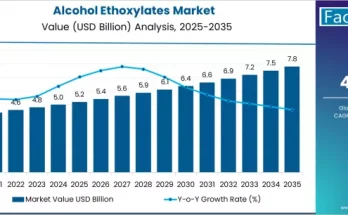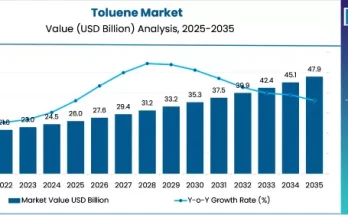Packaging Challenges in Cold Chain Logistics for Biopharmaceuticals
In the pharmaceutical industry, transporting temperature-sensitive products such as biopharmaceuticals and vaccines requires precision and care. Cold chain logistics is crucial for maintaining product integrity, ensuring safety and efficacy. However, it poses challenges that need addressing. Packaging challenges in cold chain logistics for biopharmaceuticals are crucial to address, as any compromise in product integrity during transportation can lead to reduced efficacy, potential safety concerns, and financial losses.

Key Challenges and Recent Examples from the Biopharmaceutical Industry
· Temperature-Sensitive Nature of Biopharmaceuticals: Biopharmaceuticals, including vaccines and biologics, are highly sensitive to temperature fluctuations. Maintaining the required temperature range is crucial for their stability and effectiveness. For instance, mRNA-based vaccines like the Pfizer-BioNTech and Moderna COVID-19 vaccines require ultra-cold storage temperatures to preserve their delicate lipid nanoparticles and ensure vaccine efficacy. (Current stock detail for Pfizer)
o To overcome the challenge of temperature-sensitive biopharmaceuticals, it is essential to use temperature-controlled shipping and refrigerated transport. Implementing real-time temperature monitoring with data loggers and sensors allows for immediate action in case of deviations. Properly validating packaging for specific temperature requirements ensures product stability.
· Risk of Temperature Excursions: During transportation, temperature excursions can occur due to various factors, such as delays, improper handling, or extreme weather conditions. For example, during the 2018 flu season in the United States, severe cold weather led to a spike in flu-related hospitalizations. The demand for flu vaccines increased, and improper temperature control during transportation could have affected vaccine potency and efficacy.
Get a detailed analysis of the Biopharmaceuticals Packaging Industry
o It is essential to utilize temperature-controlled shipping and refrigerated transport to maintain the required temperature range. Implementing real-time temperature monitoring with data loggers and sensors ensures continuous tracking and immediate alerts for deviations. Properly validating packaging to withstand external factors and provide thermal protection is crucial. Collaborating closely with logistics partners to ensure proper handling and adherence to cold chain protocols is vital.
Also check: Future of Packaging Automation: How Automation Solutions are Revolutionizing the Packaging Industry
· Insufficient Packaging Validation: Ensuring that the packaging used for biopharmaceuticals is appropriately validated is crucial. In 2020, Eli Lilly had to dispose of a batch of its COVID-19 antibody treatment due to a packaging defect that compromised its potency. Proper validation of packaging materials and designs helps prevent such incidents and ensures the temperature control necessary for product stability.
o To address the challenge of insufficient packaging validation for biopharmaceuticals, it is crucial to prioritize proper validation. The case of Eli Lilly in 2020, where a packaging defect led to the disposal of a batch of COVID-19 antibody treatment, underscores the importance of robust validation. Ensuring packaging materials and designs are rigorously tested helps prevent incidents that compromise product potency.
· Inadequate Insulation and Thermal Protection: Insufficient insulation and thermal protection in shipping containers can lead to temperature deviations. In 2018, the United
Parcel Service (UPS) invested in new thermal packaging to enhance cold chain capabilities for temperature-sensitive biopharmaceuticals. This investment aimed to ensure better temperature control during transit and reduce the risk of product degradation.
o To overcome the challenge of inadequate insulation and thermal protection during biopharmaceutical transportation, it is crucial to invest in effective solutions. For instance, following UPS’s example in 2018, companies can upgrade to new thermal packaging to enhance cold chain capabilities. These improvements help maintain proper temperature control during transit, reducing the risk of temperature deviations that could compromise product integrity.
· Transportation Across Different Climate Zones: Transporting biopharmaceuticals across varying climate zones poses a significant challenge. In 2021, India faced a logistical challenge while transporting COVID-19 vaccines to remote areas with extreme weather conditions. Properly insulated and temperature-controlled packaging is essential to prevent temperature excursions during such shipments.
o This challenge can be overcome by using specialized packaging solutions that can maintain the required temperature range throughout the transportation process. This may include insulated containers, thermal blankets, or temperature-controlled shipping containers. For example, India faced a logistical challenge in 2021 while transporting COVID-19 vaccines to remote areas with extreme weather conditions.
What are the Types of Pharmaceuticals Transported Worldwide?
Types of pharmaceuticals transported globally include:
1. Vaccines
2. Biologics
3. Generic drugs
4. Over-the-counter medications
5. Specialty medications
How are the pharmaceuticals transported over long distances?
Pharmaceuticals are transported long distances through a variety of methods to ensure their safety and efficacy. The most common mode of transportation is air freight, utilizing specialized temperature-controlled containers and packaging to maintain the required temperature range. These containers are equipped with temperature-monitoring devices to track any deviations and ensure the integrity of the products.

Additionally, pharmaceuticals can also be transported via road, rail, and sea, depending on the location and infrastructure available. Regardless of the mode of transportation, strict adherence to regulatory guidelines and good distribution practices is essential to ensure the proper handling, storage, and transportation of pharmaceuticals to their destination, maintaining their quality and effectiveness.
· Regulatory Compliance: Regulatory bodies like the U.S. Food and Drug Administration (FDA) and the European Medicines Agency (EMA) have strict guidelines for the transportation and storage of biopharmaceuticals. Any failure to comply with these regulations can lead to product recalls or delays in market approval.
o To ensure regulatory compliance in the transportation of biopharmaceuticals, companies must adhere to strict guidelines set by regulatory bodies like the FDA and EMA. Non-compliance can result in product recalls or delays in market approval.
o For instance, in 2019, a major pharmaceutical company faced regulatory issues due to temperature control problems during distribution, leading to delays in launching a new biologic drug. Collaborating with regulatory experts, implementing proper temperature monitoring, and following Good Distribution Practices (GDP) are vital to meet regulatory requirements and avoid potential setbacks.
Addressing these packaging challenges requires a collaborative effort between pharmaceutical manufacturers, logistics providers, and regulatory authorities. Implementing validated packaging, investing in advanced temperature-monitoring systems, and conducting regular audits to assess compliance are essential steps in ensuring the integrity of biopharmaceuticals throughout the cold chain logistics process. Continuous improvement and knowledge-sharing within the industry are vital to stay updated on best practices and innovations in cold chain logistics for biopharmaceuticals.



